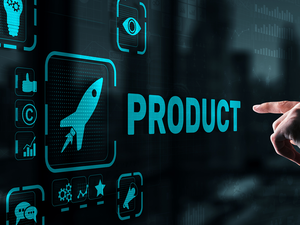 ET Special
ET SpecialBest Professional Courses on Product-Management
| Offering College | Course | Website |
|---|---|---|
| Indian School of Business | ISB Professional Certificate in Product Management | Visit |
| Indian School of Business | ISB Product Management | Visit |
| Northwestern University | Kellogg Post Graduate Certificate in Product Management | Visit |
1. The Core Purpose:
- Product Management: Product Management primarily focuses on the strategic development and lifecycle management of a product or service. The core purpose of Product Management is to identify market needs, create a vision for the product, and guide its development to meet those needs effectively. Product Managers are responsible for ensuring that the product aligns with the company's goals and that it continues to evolve to meet changing customer demands.
- Project Management: Project Management, on the other hand, is more about the tactical execution of specific projects. Project Managers are responsible for planning, executing, and closing projects within a defined scope, budget, and timeline. Their primary goal is to ensure that projects are completed on time and within budget while meeting the specified quality standards.
2. Focus on Timeframe:
- Product Management: Product Management operates on a longer timeframe, often spanning several quarters or even years. Product Managers are concerned with the entire product lifecycle, from conceptualization and development to launch and ongoing improvement. They need to have a deep understanding of market trends and customer needs to make informed decisions that drive the product's long-term success.
- Project Management: Project Management deals with shorter timeframes, typically ranging from weeks to months. Project Managers are focused on achieving specific, short-term objectives outlined in the project's scope. They need to efficiently allocate resources, manage risks, and keep the project on track to meet its deadlines.
3. Key Responsibilities:
Product Management: Product Managers are responsible for a wide range of activities, including:- Market Research: Understanding customer needs and market trends.
- Product Strategy: Defining the product's vision, goals, and roadmap.
- Prioritisation: Determining which features or enhancements should be developed next.
- Cross-functional Collaboration: Working with engineering, design, marketing, and sales teams to bring the product to market.
- Customer Feedback: Gathering feedback and continuously improving the product.
- Project Planning: Creating a detailed project plan, including tasks, timelines, and resource allocation.
- Resource Management: Assigning tasks to team members and managing their workloads.
- Risk Management: Identifying potential issues and developing mitigation plans.
- Budget Management: Monitoring and controlling project expenses.
- Quality Assurance: Ensuring that project deliverables meet quality standards.
4. Success Metrics:
Product Management: The success of a Product Manager is often measured by the product's long-term performance in the market. Key performance indicators (KPIs) may include:- Customer Satisfaction: Measured through surveys, feedback, and net promoter scores.
- Revenue Growth: Tracking the product's contribution to overall revenue.
- Market Share: Monitoring how the product performs compared to competitors.
- User Adoption: Analysing how many customers are using the product and its features.
- Project Schedule Adherence: Ensuring that the project stays on track according to the planned timeline.
- Budget Adherence: Managing project costs and preventing budget overruns.
- Quality of Deliverables: Ensuring that project outcomes meet predefined quality standards.
- Stakeholder Satisfaction: Gathering feedback from project stakeholders regarding their level of satisfaction with the project's execution.
5. Required Skill Sets:
Product Management: To excel in Product Management, individuals need a unique combination of skills, including:- Market Research: The ability to gather and analyse data to understand customer needs and market trends.
- Strategic Thinking: Developing a clear product strategy and vision.
- Communication: Effectively conveying the product vision and priorities to cross-functional teams.
- Prioritisation: Making data-driven decisions about feature development.
- User-Centric Approach: Putting the customer at the centre of all decisions.
- Organisational Skills: Managing project tasks, timelines, and resources.
- Risk Management: Identifying potential issues and developing contingency plans.
- Leadership: Guiding and motivating project team members to achieve their best.
- Budgeting: Managing project finances and resource allocation efficiently.
- Problem-Solving: Addressing challenges that arise during the project's execution.
6. Interaction with Other Teams:
- Product Management: Product Managers work closely with various cross-functional teams, including engineering, design, marketing, and sales. They act as a bridge between these teams, ensuring that everyone understands and works toward the product's goals.
- Project Management: Project Managers also collaborate with cross-functional teams, but their interaction is more focused on project execution. They ensure that each team completes its assigned tasks within the project's timeframe and budget.
7. Adaptability:
- Product Management: Product Management requires adaptability to changing market conditions and customer feedback. Product Managers must be open to pivoting the product's strategy or features based on new information.
- Project Management: While Project Managers must adapt to unforeseen challenges during a project, the overall project scope and objectives remain relatively stable once the project is initiated.
In summary, Product Management and Project Management are distinct roles within an organisation, each with its unique responsibilities, goals, and skill sets. Product Management focuses on the long-term strategic development of products or services, while Project Management is concerned with the tactical execution of specific projects. Understanding the differences between these roles is essential for organisations to ensure that both product and project objectives are met successfully. Moreover, recognizing these distinctions can help individuals who aspire to excel in either of these roles develop the appropriate skills and mindset necessary for success in their chosen field.
Ultimately, both Product Management and Project Management are vital for an organisation's success. They complement each other, with Product Management setting the strategic direction and Project Management ensuring the efficient execution of initiatives. By recognizing the unique value each role brings, organisations can achieve greater efficiency and effectiveness in delivering products and projects that meet customer needs and drive business growth.
Frequently Asked Questions
1. What is the fundamental difference between Product Management and Project Management?A: Product Management primarily deals with the strategic development and lifecycle management of a product or service, focusing on market needs and long-term success. Project Management, on the other hand, is more about the tactical execution of specific projects, ensuring they are completed on time, within budget, and meet quality standards.
2. How do the timeframes for Product Management and Project Management differ?
A: Product Management operates on a longer timeframe, often spanning quarters or years, as it oversees the entire product lifecycle. In contrast, Project Management works with shorter timeframes, typically ranging from weeks to months, focusing on achieving specific, short-term project objectives.
3. What are the primary responsibilities of Product Managers and Project Managers?
A: Product Managers are responsible for market research, product strategy, prioritisation of features, cross-functional collaboration, and continuous improvement of the product. Project Managers, on the other hand, focus on project planning, resource management, risk management, budget management, and ensuring the project stays on track.
4. How are the success metrics different for Product Management and Project Management?
A: Product Management success is often measured by customer satisfaction, revenue growth, market share, and user adoption. Project Management success is typically judged by factors such as project schedule adherence, budget adherence, quality of deliverables, and stakeholder satisfaction with the project's execution.
5. What skills are essential for individuals pursuing careers in Product Management and Project Management?
A: Product Managers require skills in market research, strategic thinking, communication, prioritisation, and a user-centric approach. Project Managers need skills in organisation, risk management, leadership, budgeting, and problem-solving. These skill sets align with the distinct responsibilities of each role.
Also Read:
- Balancing Work and Study: Strategies for Working Professionals in Management Courses
- The Importance of Networking in Management Courses for Working Professionals
- The Role of Technology in Management Courses for Working Professionals
- Case Studies and Practical Applications in Management Courses for Working Professionals
- Building High-Performing Teams: Insights from Management Courses for Working Professionals
Disclaimer: This content was authored by the content team of ET Spotlight team. The news and editorial staff of ET had no role in the creation of this article.







 Get Unlimited Access to The Economic Times
Get Unlimited Access to The Economic Times

